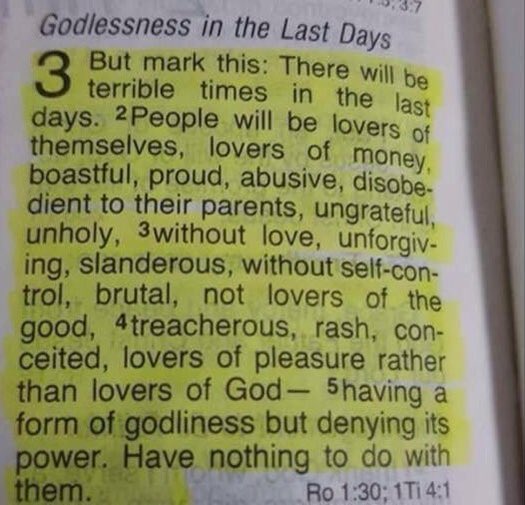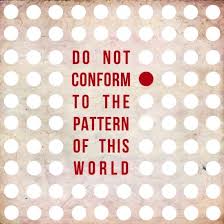You may as well know this too, Timothy, that in the last days it is going to be very difficult to be a Christian. 2 Timothy 3:1 (TLB)
Christians are well acquainted with the concept of “The Last Days,” the very end of the age leading up to Christ’s triumphant return. It is no mystery to us that things are going to get a whole lot worse before they get better.
Even many non-Christians are at least aware of this concept. If you have a social media account, the concept is kind of hard to avoid.
The first five months of 2020 certainly haven’t given us any reason to doubt that the end of all things is near. Nevertheless, there are a couple of things that we need to understand about “The Last Days.”
When are the Last Days?
Most Christians, as I stated above, think of the Last Days as being the very end of this age leading up to Judgment Day. The prophetic books of Daniel and Revelation speak of a Great Tribulation lasting seven years that will mark the end of the age.
Some believe that God’s people will be “raptured,” or whisked up into heaven before the Tribulation begins, so as not to have to suffer through it. Some believe, according to Daniel 9:27, that this rapture will occur in the middle of the Tribulation when the “Man of Lawlessness” (a.k.a. the Antichrist) is revealed. And some believe that there will be no rapture at all, but rather that God will protect His people and help them to stand firm throughout the Tribulation.
However, none of these views acknowledge that the Last Days have actually been going on for quite some time.
Then Peter stood up with the Eleven, raised his voice and addressed the crowd: “Fellow Jews and all of you who live in Jerusalem, let me explain this to you; listen carefully to what I say. These people are not drunk, as you suppose. It’s only nine in the morning! No, this is what was spoken by the prophet Joel:
“‘In the last days, God says,
I will pour out my Spirit on all people.
Your sons and daughters will prophesy,
your young men will see visions,
your old men will dream dreams.
Even on my servants, both men and women,
I will pour out my Spirit in those days,
and they will prophesy.
I will show wonders in the heavens above
and signs on the earth below,
blood and fire and billows of smoke. Acts 2:14-19 (NIV)
In the past God spoke to our ancestors through the prophets at many times and in various ways, but in these last days he has spoken to us by his Son, whom he appointed heir of all things, and through whom also he made the universe. Hebrews 1:1-2 (NIV)
But, beloved, remember the words that were previously spoken by the apostles of our Lord Jesus Christ. They said to you, “In the last days there will be scoffers who will walk after their own ungodly desires.” These are the men who cause divisions, sensual, devoid of the Spirit. Jude 1:17-19 (MEV)
In the above verses, I have highlighted the words that show the Last Days as being present tense, not future tense. A question I get from a lot of my Christian friends is, “Do you think we’re living in the Last Days?” Absolutely we are.
The Last Days began when the Church began, at Pentecost. We have been in the last days for nearly 2,000 years now. That’s a lot of days!
For this reason, I would submit to you that anyone who is trying to decipher scripture or read the signs of the times to figure out when the end is coming, or when (or if) the Rapture will happen, have completely missed the point. The point is that instead of looking up at the sky for signs, we should be looking inward.
What should we be doing in the Last Days?
2020 has presented us with many challenges so far. Some of them are new (COVID-19), and some of them are ongoing problems that are bubbling to the surface again, such as the current racial unrest over the George Floyd incident. These are the kinds of things that light up the social media accounts of Christians with public calls to repent, for the end is near.
A call for repentance is always good advice, but there’s an elephant in the room that we need to put the spotlight on.
With the understanding that the Last Days are present tense, not future, let’s go back to the quote at the top of this post. Paul’s warning to Timothy is also a warning to us, because we are in the same last days now as the world was when this letter was written. It was difficult to be a Christian then, and it is difficult now.
“Oh, I know,” you might say. “Just look at how we’re portrayed in the media and by the government. They destroy our economy, but glorify abortion and drug use,” etc.
True, but that’s not what I’m talking about right now. And it’s not what Paul was talking about then either. He goes on in the next eight verses to describe the people Timothy ought not to associate with, and the methods that they use. But here’s the kicker…
He was talking about people INSIDE the church!
It is no news flash that Christians are opposed in today’s culture. The ignorance of outsiders has never torn down the church, and it won’t now. Our greatest enemy comes from within. And here is what they look like:
-
-
- Narcissists
- The greedy and stingy
- People who draw attention to themselves
- People who look down on others
- People who take advantage of others
- People who dishonor their parents
- People with an entitlement mentality
- Those who conform to the pattern of this world
- Those who won’t help others
- Those who hold grudges
- Those who tear down other people verbally
- The undisciplined
- The physically violent
- Those who glorify evil
- Back-stabbers
- The impulsive
- The self-centered
- Hedonists
- Religious Legalists
-
That’s quite a list. Except there’s a problem. I said “they.”
And as of this writing, if I am going to be completely transparent, I believe that I fit six of these categories myself. So, it’s not “them.” It’s “us.”
This is why I say that we don’t have time to waste looking up at the sky, watching for a sign of Jesus’ return. The thing is, YOU DON’T KNOW when He’s coming back. The Great Tribulation may have already started. Or not. The Rapture may be tomorrow. Or 10 years from now. Or never.
Here is what we do know:
For the Son of Man will come in his Father’s glory, with his angels; and then he will repay everyone according to his conduct. Matthew 16:27 (CJB)
God has given us all gifts and wired our personalities to do the work He had planned for us to do before we were ever born. To be able to do that work effectively and leave a legacy in the world for Jesus, our hearts must COMPLETELY belong to Him. The only way that will happen is if we take an honest look at that list above and figure out what we need to repent of in our own lives. Then take a radical step of faith and DO that repenting.
Because in these last days, ain’t nothing gonna be easy for us. Let’s not make it any harder for ourselves than it needs to be.
(Nevertheless, there will be signs. To learn more about those, please come back for Part 2–What Sign?)








